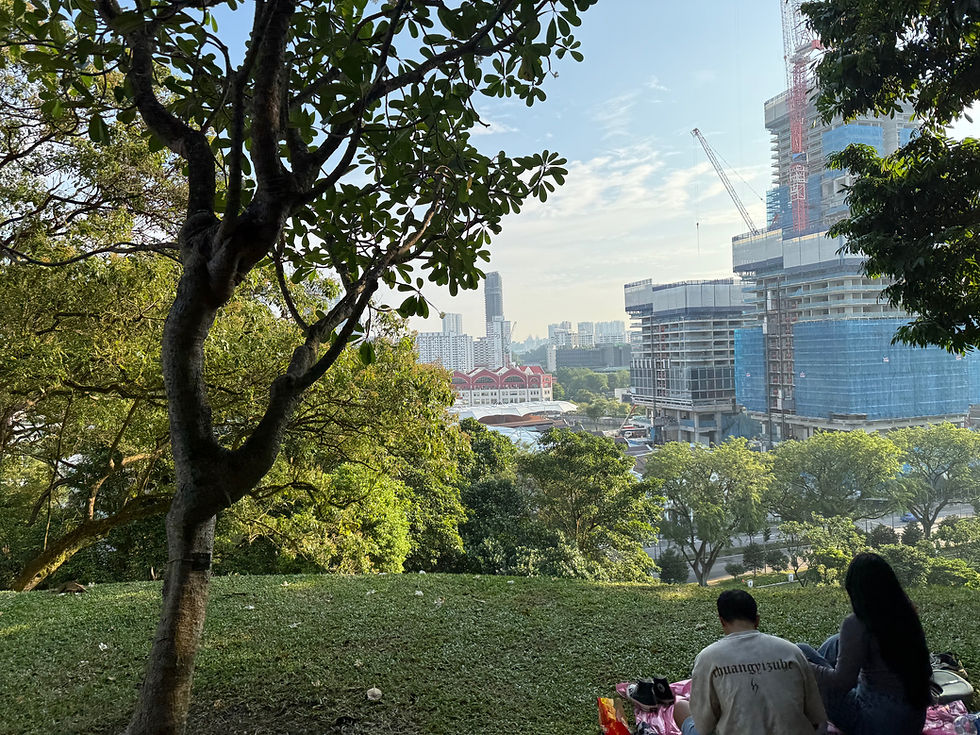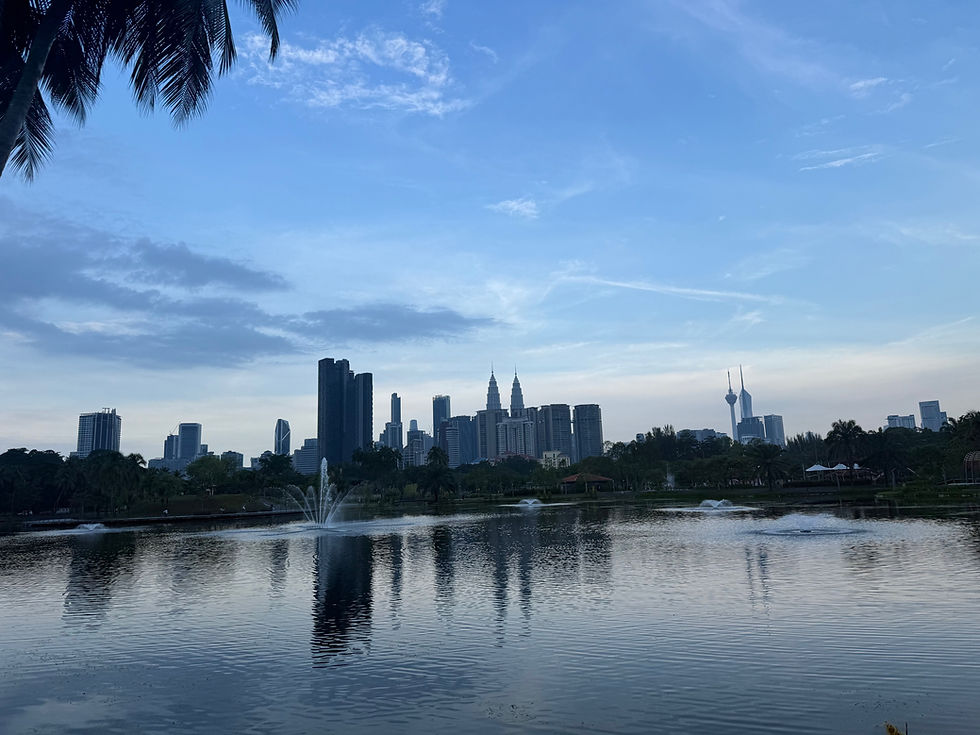I Forgot You Existed: The Tragedy of Aung San Suu Kyi and a Democratizing Myanmar
- Nikola Ranick
- Aug 18, 2020
- 7 min read
A series of events, people, or even places, that have been (rightfully or wrongfully) neglected or ill-reported, that which is easy to lose sight of in a world with so much going on-especially now.

This week we focus on the still-waffling social and political status quo of one of the poorest countries in Southeast Asia: Myanmar. What can this 50 million plus-populated, agricultural-based country tell us about… well, anything? Certainly a lot, but let us stick to its tenuous political evolution, as it is perhaps the biggest ongoing factor for the country (barring Corona, obviously).
Myanmar, like much of Southeast Asia, was a rather peculiar ethnic-conglomerate slapped together for the convenience of European colonists- in this country’s case, the British from the 1820's to the 1940's. Comprised of well over 100 sub-ethnic groups and innumerable languages, the dominant Bamars make up a super-majority of the population (68%) with many other ethnic and sub-ethnic groups filling in the rest (Shan, Kyin, Rakhine, ETC!!). Notably, much like Indians with Hinduism, this tapestry of ethnicity is the most united on its varying practices of Buddhism and its identification of the ‘other’ as those identifying outside of this religious standing. As should already be clear, themes of ethnic identity and autonomous strife have played a powerful role in the country’s history, particularly post-independence.
Speaking of which, Myanmar (Burma at the time) was lucky to achieve its independence in the years after WW2, coinciding with British politician Clement Atlee and his Labour Party’s stunning victory over the longstanding Conservatives + Winston Churchill (side note: Being British 101 is kicking out the party that was decisive in winning a global war against fascism). This iteration of Labour promised the exhausted (and broke) British public a focus on domestic affairs and construction of the welfare state. With this in mind, Britain had no need, nor financial coffers, for a substantial colonial presence, and therefore India, Myanmar, and much of the colonial legacy were slowly let off the British Hook.
Leadership then rested with Myanmar’s military force, the Tatmadaw, which, despite tumult and frequent disorganization/infighting (most embodied by the assassination of military leader and independence hero Aung San), has managed to stay in power pretty much into the present day. Various elections have b

een held under differing guises of democracy, but essentially none have been considered fair nor free.
The closest taste the Burmese public came to genuine democracy were in elections held in 1990, resulting in a resounding landslide for the National League for Democracy and its leader, Aung San Suu Kyi, an aspiring female politician and daughter of the aforementioned independence hero. When it came to acknowledging these election results and therefore beginning a transition of power, the Tatmadaw and its leadership basically said “I don’t know her’ by never allowing the elected assembly to gather and placing Ms Suu Kyi on house arrest. This limitation probably wasn’t great for her day-to-day existence but did happen to be rocket fuel for her international presence. Soon enough, the world viewed Ms. Suu

Kyi as a living legend, and a champion for democracy and her people. This sort of social justice was electrifying in a period of time when communism was imploding and the world was set to enter Francis Fukuyama’s End of History theory with democracy flourishing around the world...lol @ that prediction. Suu Kyi won the Nobel Peace Prize in 1991 (when it still meant something) and international political efforts (oftentimes accompanied by sanctions) seemingly yearned for the day when the Burmese people would have their freedom.
Flash forward to today and many Nobel Fans and ‘90s Democracy nerds will cringe at the ‘progress’ since then. Catalyzed by increasing international pressure, economic stagnation, lingering NLD sentiment, and overall military fatigue, the Tatmadaw finally allowed democratic elections in 2015-but wholly on their terms. For their newest iteration of a state constitution, they emphasized multiparty democracy but still made clear their influence by reserving enough seats for military personnel to effectively prevent any unwanted constitutional change and maintain control over domestic forces (through several mandated cabinet positions). In one last act of pettiness, the army even passed a constitutional provision barring anyone with foreign marriages or foreign children from seeking executive office, a limitation clearly leveled at Suu Kyi and her British passport-wielding children. Nonetheless, the NLD won an astounding majority (86%) of seats, impressing even the most ambitious of democratic activists. Despite being barred from Prime-Minister-ship, Suu Kyi had her party appoint a virtual puppet for Prime Minister as she herself created a unique position that basically asserted her as the true Head of State. With Suu Kyi at the helm (at least informally) of her country, the long dominance of the military seemed to be at a perennial waning.
And then the enthusiasm exhausted itself and reality set in. Despite its abundance of seats, the NLD was very much still subservient to the military in actual power dynamics, as well as by choice. Its cabinet positions were issued out to party stalwarts and loyalists less so than actual technocrats and Miss Suu Kyi seemed almost too eager to accommodate military influence. As the economy has still remained irksomely poor, ethnic conflict has raged on, most notably in the tragic displacement and Genocide of thousands of Rohingya Muslims. The Tatmadaw has raided and slaughtered these people with little to no eyebrows raised, many having now fled en masse to Bangladesh while the world has (sort-of) looked on in horror. Most tragic was Syu Kyi’s long standing avoidance of the issue which eventually culminated with a UN Tribunal defense of the army’s actions that seemed less so compromising and moreso dismissive (the focus being on the initial instigation of the much weaker Rohingya armed forces themselves). For most pragmatic international observers, this was the final straw and talks of stripping Ms Suu Kyi of her Peace Prize still rage on to this day. In particular, this author thinks back to a cunning young State Department worker who guest lectured at a DC political conference DC in 2016. The speaker herself was very liberal yet also cognizant of the need for Suu Kyi to accommodate the military apparatus by tethering positions on the crisis..in the accompanying years, this generally diplomatic look has soured to pure pessimism.

So what went wrong? Why would an inspirational political figure stand on the sidelines while democratic reforms stalled (or even got rolled back-arrests of journalists actually went up in the early years of the NLD government) and genocide occur?
Well, this author rather controversially flips the question-why wouldn’t she-especially if Ms. Suu Kyi genuinely was the voice of her people? It is that which is the tragic reality of the West’s support for Miss Suu Kyi-she is a stalwart for her people’s interests, but the goals, procedure, and actuality of those interests are far more diverted from what the West may want or even find ethical.
-For one, Miss Suu Kyi’s surprising comfort alongside the Tatmadaw shouldn't be shocking. Despite her previous house arrest, remember that her father was central to early iterations of it! This is why her identity is inherently political and national in nature. Her family was instrumental in forming the state and early military structures that pushed for it. Sure, she knows they really hold the power, but she is also loath to move the needle in an unfavorable direction for an organization she views as a positive pillar for the country. This is further reinforced by her role in maintaining the NLD, which itself seems a similar apparatus to the Tatmadaw in terms of bureaucracy and uniformity.
-As for economic growth, what more could there be to do? Myanmar’s economic trajectory (for a very poor country) is strong enough and sanctions have been lifted since the 2015 election-but it is still inevitably poor. In a region as historically limited as Southeast Asia, playing the long game is the norm and Miss Suu Kyi is cognizant of this, even if it may seem her country is treading water.
-Lastly and most strikingly, Miss Suu Kyi’s views on the Muslim Rohingya are indeed monstrously dismissive, but in that respect, they are also representative of the majority Buddhist nation. Once again proving that all religious fundamentalism begets violence, this heterogeneous country only has its rough Buddhist roots to forge consensus across its ethnic lines, a type of state identity bound to create an intolerable ‘other’ (likeso to Muslims in India). Despite settling in Burma centuries ago, Rohingyas have always been viewed (incorrectly) as foreign invaders in both culture and land, unworthy of belonging in the territory they claim; this is nothing short of a denial of indigenous heritage in a deeply traditional country. As such, most Burmese are loath to have any contact with them, and would not mourn mass extermination. Such views excusing vast persecution are horrendous-but that doesn’t mean it's not true, especially in an economically undeveloped and educationally-sparse landscape. Recall this author’s ancestry in the Balkans-mass removal or persecution of people who have historical links mean nothing when a desire for statebuilding and identity supersedes. Suu Kyi is indeed representing her people’s true desires-those desires just aren’t exactly the ones most intellectuals would think of or want when it comes to trends in the developing world.
In this respect, the West got what it always thought it would from Suu Kyi: Someone who represents her people’s ambitions, in both their glory and their vice. They did not get someone who would try (likely unsuccessfully) to push for more democratic reforms nor embrace cultural heterogeneity, even if those values are essential to developing what we view as a modern, liberal, state.

Still, do not be fooled: Suu Kyi is a pragmatist at heart- that is, after all, why she is where she is at: Sharing power with the very institution her father once organized and yet looked to indefinitely imprison her. She recognizes the extensive influence of the Tatmadaw and balances it with the varying beliefs of majority Burma, no matter how violent either side may be in nature. She very well may be the leader her people want and need. But when it comes to the world writ-large, she is not the healer desired, and tragically, not the one that will stop the slaughter of those outside of Burma’s Social Contract.
What a downer!
NR




Comments